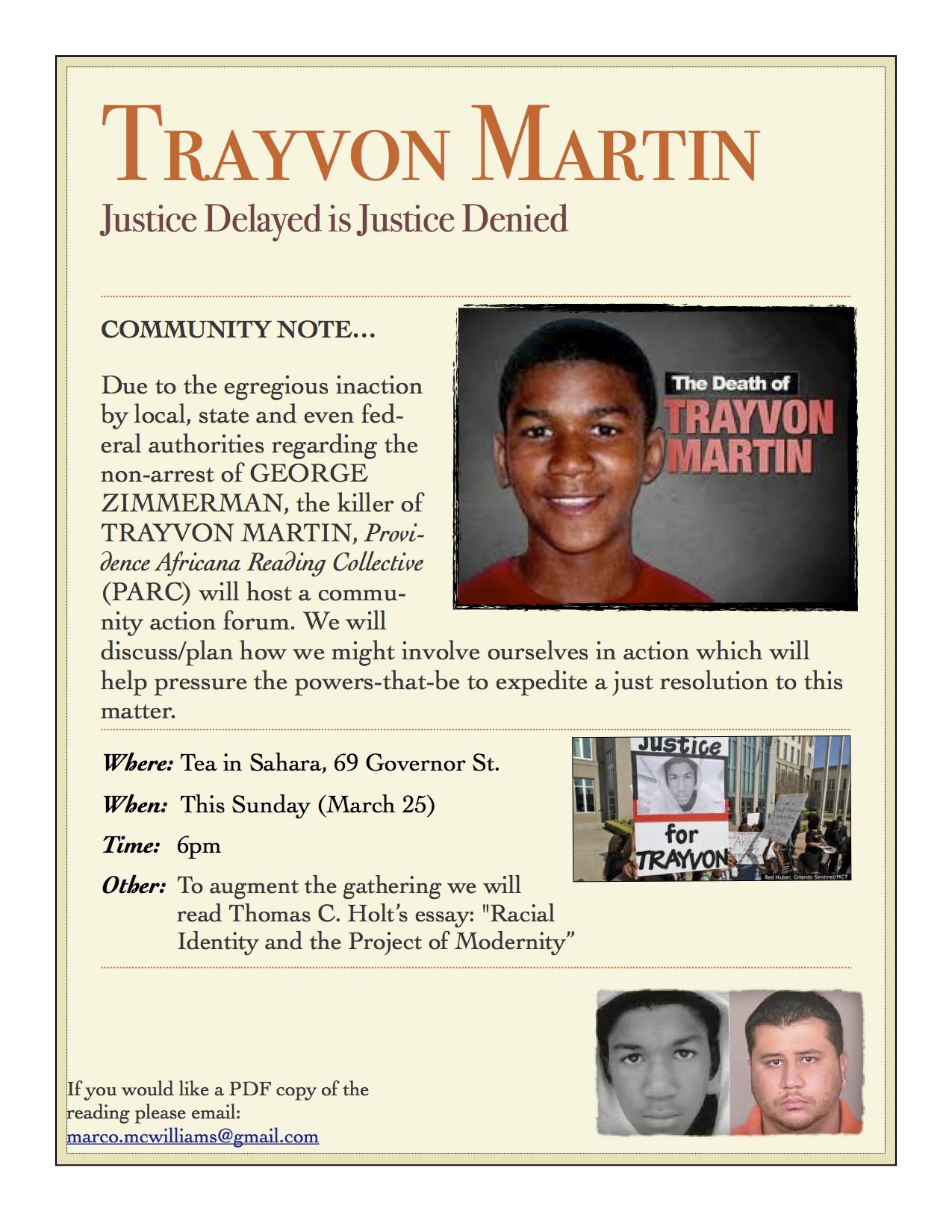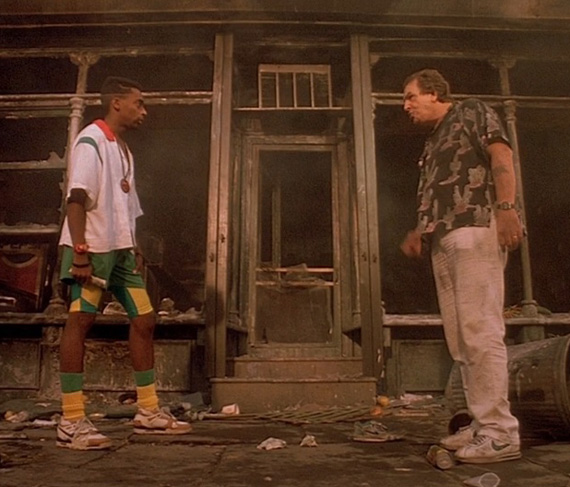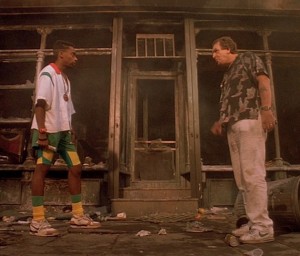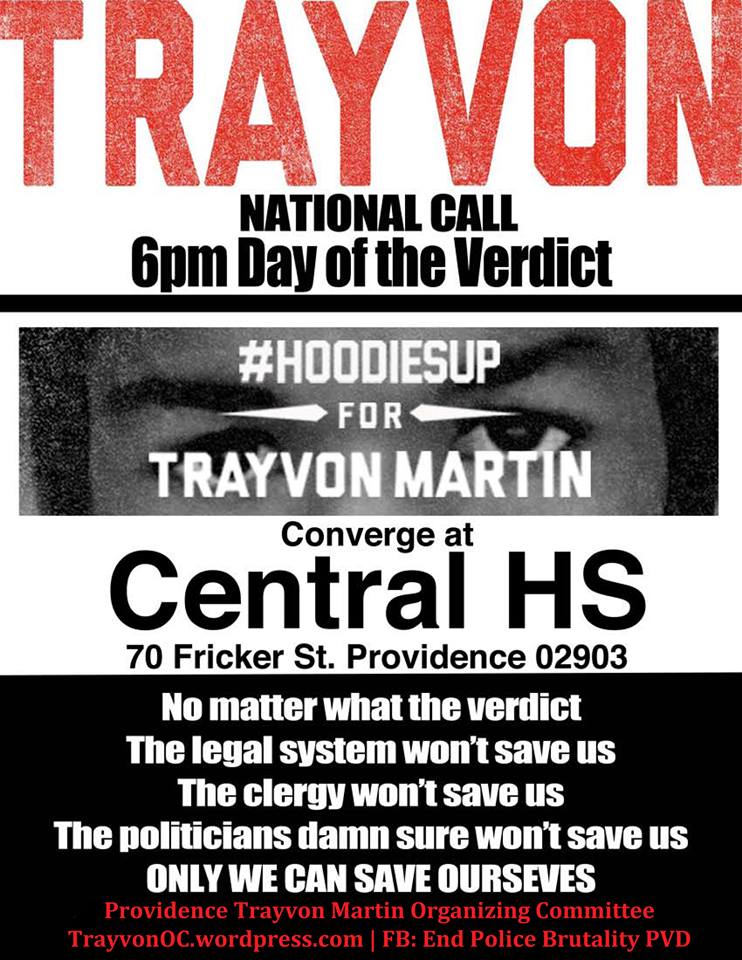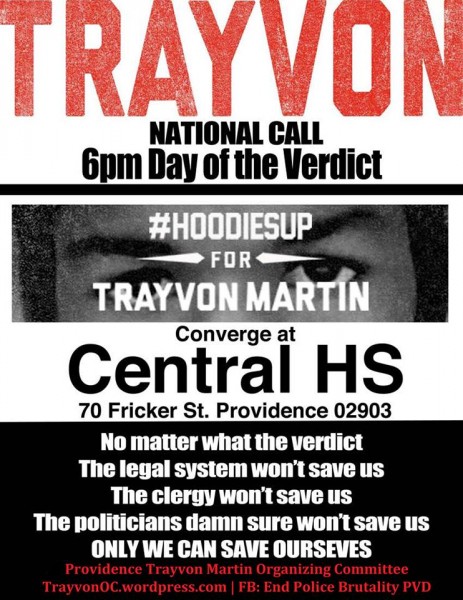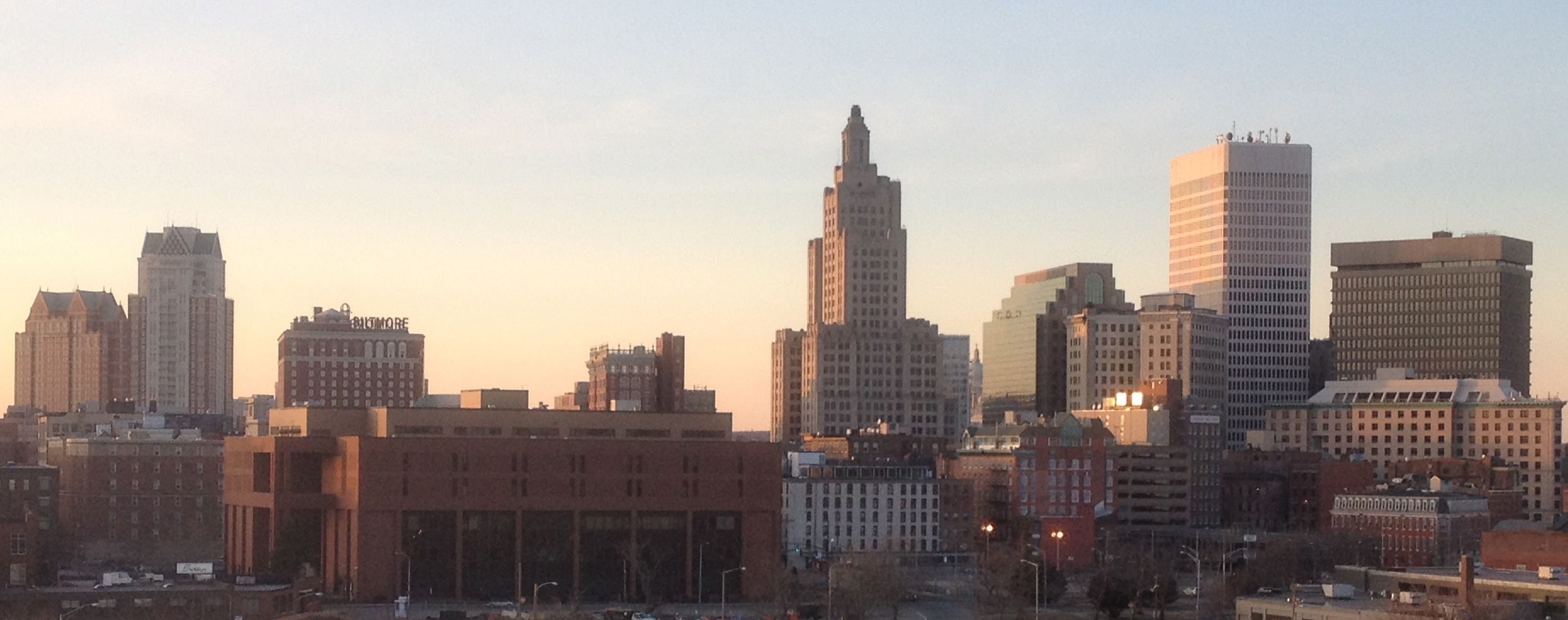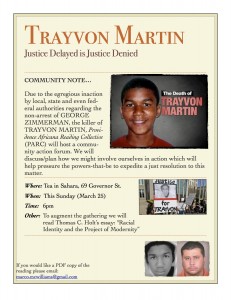 The death of Trayvon Martin and acquittal of his murderer, George Zimmerman, unleashed widespread discussion and protest of racism in America. The response has been rightful outrage; protestors filling streets and indignant polemics filling the media. Yet a lion’s share of the response misses the mark.
The death of Trayvon Martin and acquittal of his murderer, George Zimmerman, unleashed widespread discussion and protest of racism in America. The response has been rightful outrage; protestors filling streets and indignant polemics filling the media. Yet a lion’s share of the response misses the mark.
Trayvon Martin’s death, like most all instances of racism, resulted from the structural racism which exists in the United States—income, education, incarceration, voting inequality, etc. Systemic, pervasive racial inequality inevitably breeds racist behavior. But, in a manner both common and pernicious, most of the response has ‘individualized’ racism, reducing the problem to the depraved attitudes of George Zimmerman and other racists like him. The problem becomes just Zimmerman; the grand remedy is nationwide attitude reform. Any course of action that individualizes racism as such is circular, leading directly back to where we stand today. If we are serious about stopping the rushing stream of Trayvon Martins, a different conceptualization of racism and a different action plan is necessary.
Most of the mass outcry at Trayvon Martin’s murder and Zimmerman’s acquittal has treated racism as an individual problem. The limitations of the demands and the proposed program to fight racism both treat racism as an individual attitude rather than a systemic ideology rooted in material inequalities.
In example, the nearly singular demand expressed by the outraged has been a guilty verdict, to lock Zimmerman up. Op-ed after op-ed, tweet after tweet, and speech after speech blasted the Florida justice system. Here most of the outrage stops. Zimmerman is a racist who must be imprisoned, and perhaps the acquitting jury members share some of the responsibility as well. The call on the Obama administration to prosecute Zimmerman on civil rights grounds has been far and away the most resounding and organized response, quickly amassing over one million signatures. Overwhelmingly, anti-racists have directed their rage at Zimmerman the individual.
Even when the discussion has moved beyond Zimmerman, the outraged have generally kept racism at the level of the individual. The common plan of action to combat further racism has been to promote self-reflection on racism amongst racist individuals everywhere. President Obama summarized this strategy in his widely celebrated speech on the matter. Obama concluded,
“And then, finally, I think it’s going to be important for all of us to do some soul-searching. There has been talk about should we convene a conversation on race… [A]sk yourself your own questions about, am I wringing as much bias out of myself as I can? Am I judging people as much as I can, based on not the color of their skin, but the content of their character? That would, I think, be an appropriate exercise in the wake of this tragedy.”
The remedy is to ‘wring bias’ out of people, to question our individual attitudes. In the same vein, perhaps the most trendy social media response was to declare ‘I am not Trayvon Martin’. Turning the traditional ‘I am’ rally cry of unity on its head, the ‘I am not’ strategy focuses on stimulating discussion of ‘racial privilege’. Like Obama’s conclusion, the implied solution is to cleanse racists’ attitudes through sober discussion. While there hasn’t yet been anything akin to the Million Man March, we have certainly seen a Million Man Recognition of Racial Privilege of sorts in the past weeks.
Both responses are fine starting points. Zimmerman should be imprisoned as a matter of justice and racism’s omnipresence in American society needs to be talked about. But stopping there, as most of the conversation has, is not only stunted but also politically harmful. To imply that racism is merely a free-floating cancer in the minds of individuals and can be eradicated through widespread individual persuasion is to condemn the anti-racist movement to failure.
The problem with the individual-centric response is that racism is an ideology inextricably rooted in the material racial inequality of American society. Rather than existing simply in the realm of ideas, ideologies such as racism exist as a means for individuals to interpret and explain material realities. That is, ideologies help us understand the world around us. As the great historian of American racism, Barbara Fields, writes,
“Ideology is a distillate of experience. Where the experience is lacking, so is the ideology that only the missing experience could call into being…An ideology must be constantly created and verified in social life; if it is not, it dies. Ideology is not a set of attitudes that people can ‘have’ as they have a cold, and throw off the same way. Human beings live in human societies by negotiating a certain social terrain, whose map they keep alive in their minds by the collective, ritual repetition of the activities they must carry out in order to negotiate the terrain.”
Racism in the United States is an ideology that helps ‘negotiate’ the country’s drastic racial inequality. In a country with such great inequality along racial lines, racism as an ideology is profoundly powerful in explaining the ‘social terrain’. As long as this inequality exists, along with a class with an interest in exploiting it (think Fox News), racism as an ideology is not likely to disappear.
An isolated maniac thus did not alone murder Trayvon Martin. The rampant racial inequality in our society that engenders racial prejudice, along with Zimmerman, ultimately shares responsibility. Zimmerman reacted in fear and hate towards an African-American just as thousands of other Americans do each day, just as our unequal society encourages them to do. In a society that disproportionately criminalizes, impoverishes, imprisons, and generally oppresses African-Americans, an ideology of racism which understands African-Americans as ‘underclass’ criminals readily flourishes. Zimmerman looked at the world around him, one in which African-Americans are disproportionately criminalized and impoverished, and the ideology of racism made sense. When he saw Martin walking home, his instincts sprung to action and he committed racist murder.
Most of the outraged responses fall short because they fail to address these root causes of racist violence. If racist violence such as Zimmerman’s were an isolated phenomenon, a mere conviction would be sufficient. Racist violence—physical, economic, and psychological—is, however, an every-minute occurrence in America. Discussion of racism in America is vital, but discussion is only worth the action it precipitates. A political strategy of discussion that will convert American racists is bound to leave American racism safely intact. A political strategy of merely discussing ‘privilege’ in hope that racist White Americans recognize and denounce their racism is bound to leave American racism safely intact. Any political program that treats racism as a mere idea or attitude, detached from our country’s racialized slums, prisons, schools, etc, is bound to leave American racism safely intact.
To truly fight racism in America and to stop future racist brutalities like the murder of Trayvon Martin, we must focus our energies on ending the sweeping racial inequalities that generate George Zimmermans. For example, we must channel our outrage at ending the racist criminal justice system. For as long as one in three African-American men are imprisoned in their lifetimes, there will be racism and more Trayvon Martins. We must channel our outrage at fighting for decent jobs and full employment in African-American communities. For as long as African-American unemployment is more than twice that of white unemployment, and as long as African-American poverty rates nearly triple those of whites, there will be racism and more Trayvon Martins. We must channel our outrage at fighting for decent public schools in African-American communities. For as long as only roughly one-half of all male minority students graduate high school on time, there will be racism and more Trayvon Martins. We must channel our outrage at fighting the attack on voting rights. For as long as thirteen percent of all African-American men have lost the right to vote, there will be racism and more Trayvon Martins. So on and so forth.
The list is potentially long, the conclusion the same: racial inequalities must be uprooted to end racist behavior. Racism is an ideology that flourishes in unequal societies. Like any ideology, its mass appeal is in its ability to help members of society navigate their everyday reality, and its reproduction cannot occur if this reality fundamentally changes. Fighting racist behavior without fighting America’s material racial inequalities is akin to prescribing Tylenol instead of radiation for a cancer patient. George Zimmerman should be imprisoned. However, those interested in ending such racism must make demands that would dismantle nation-wide racial inequities. We need to have a wide-ranging discussion of racism in America. However, the endgame cannot be individual catharsis or moral exposé in recognizing racial privilege. Instead, our discussion must focus on why racial inequalities exist and how we are going to organize to collectively vanquish them. Continuing to discuss racism as an individual problem keeps the struggle on the American elite’s preferred terms, deflecting culpability from society’s policy-makers and leaving social structures unquestioned.
Those of us outraged must not let Trayvon Martin’s death be in vain. Let’s talk far and wide about the deep societal inequalities that cause racist injustices like Trayvon’s every day in America. In Trayvon’s name, let’s organize far and wide and fight for an end to the racial inequalities that exist at the very core of American society.

